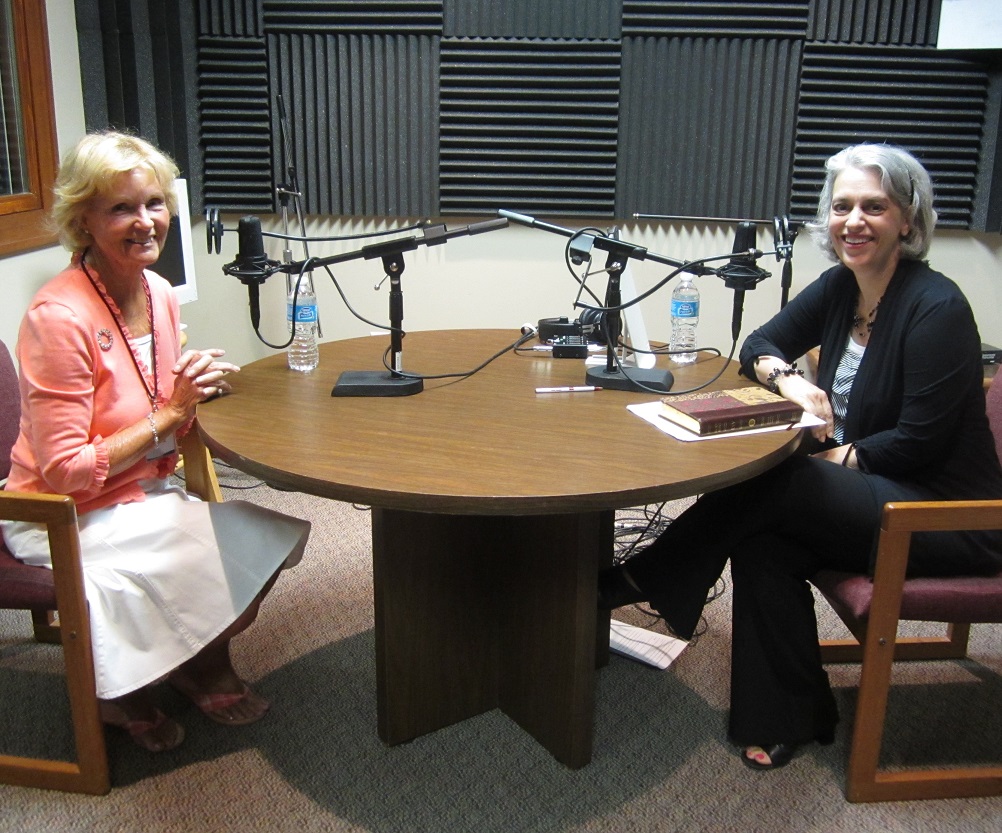All of us who’ve committed our lives to Christ are daily hoping for his approval. Although the world says we ought never to let ourselves be “used” by others, being “used” by God is a privilege. I know from experience that when I let him do what he wants with me, the results are always good. Maybe not immediately, but eventually.
Always.
As my friend Claudia says, “The Father has a way of taking our griefs and hurts and making them diamonds for the Church’s good.” Losing my husband to pancreatic cancer wasn’t “good.” But what God did, as that “bad” settled over me, was to quietly begin laying a foundation that would bring something good in due time.
I’ve been astonished watching him do this for me repeatedly since Nate died. For example, as I struggled to get used to my new widow-status, he urged me to write out my feelings, which ultimately became a devotional book for other widows. Then, when they read how God had stepped into the places Nate had stepped out of, those grieving without hope understood that God was going to bring them, too, out of sadness and into joy.
 Later, God sent along speaking opportunities and radio interviews, giving me new places to “boast in the Lord.” (2 Corinthians 10:17) One set of interviews was with Nancy Leigh DeMoss for her radio broadcast “Revive Our Hearts,” and yesterday I received this exciting information from her office:
Later, God sent along speaking opportunities and radio interviews, giving me new places to “boast in the Lord.” (2 Corinthians 10:17) One set of interviews was with Nancy Leigh DeMoss for her radio broadcast “Revive Our Hearts,” and yesterday I received this exciting information from her office:
Coming up next week on “Revive Our Hearts” broadcast with Nancy Leigh DeMoss: “Hope for an Aching Heart,” with Margaret Nyman
Margaret says widowhood is a beginning. It’s an opportunity to walk with the Lord in new ways, taking on new challenges.
Sept. 16, 2013 – Sept. 20, 2013
On these scheduled airdates, the streaming, download, and podcast audio of this broadcast and a written transcript will appear on our radio page— www.ReviveOurHearts.com/radio/revive-our-hearts/.
On this page you will also find a list of local radio stations that carry the program in your area.
* * * * * * *
This email was simultaneously thrilling and threatening. Since our recording sessions took place over a year ago, I’ve forgotten much of what was said in the 5 programs and today became very nervous. Did I contradict myself or say things that might offend listeners? Did I mix up the details or misquote my own book?
As stomach butterflies demoralized me, God tapped me on the shoulder. “Don’t forget,” he said, “these opportunities were my doing, not yours, so I’ll take full responsibility for the results.”
I had two quick responses:
- Whew!
- Can’t wait to see the results!
To win God’s approval, all we need to do is step squarely into whatever plans he makes for us (no matter how unnerving), expecting him to manage the unknowns. When we do, we’ll realize the highest of callings: to be “used” by him.
“I’m only concerned with your plans for me. I see the limits to everything human, but the horizons can’t contain your commands!” (Psalm 119:95-96, The Message)






